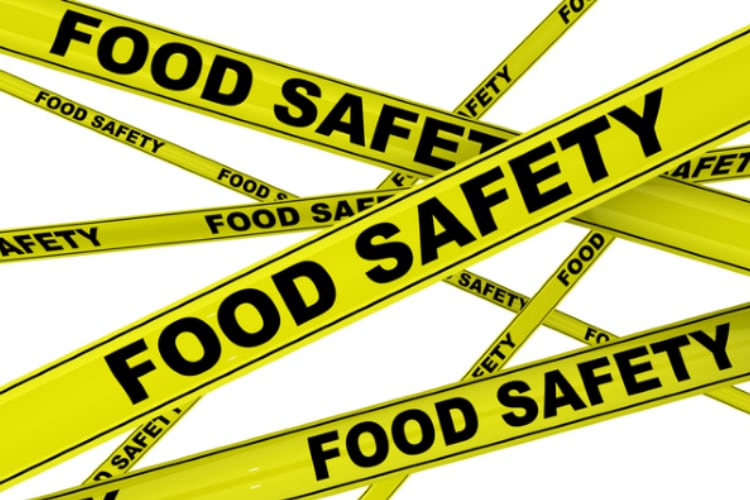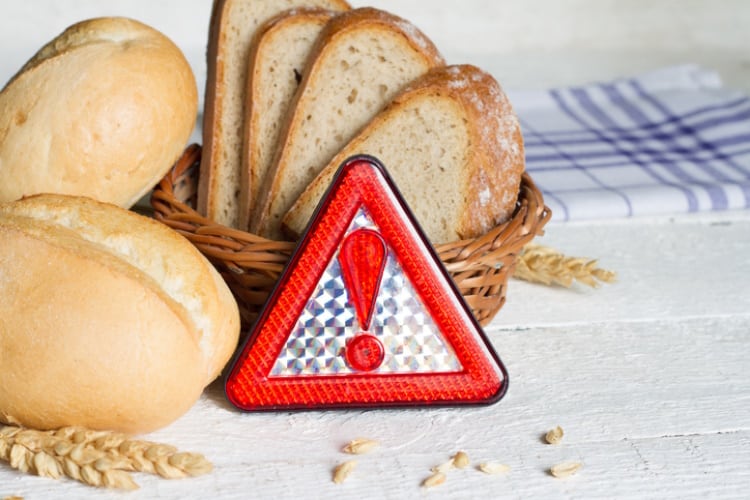The bakery and snacks sectors have reached a critical juncture in food safety. While the total number of recalls has decreased slightly – from 506 in 2023 to 495 in 2024 – the scale of these events has intensified, according to Sedgwick Brand Protection’s Product Safety and Recall State of the Nation 2025 (US edition). “While the overall number of recalls has dropped slightly, the number of impacted units has surged dramatically,” said Mark Billingham, recall advisor, International Markets. “We’ve seen an increase of 357.6% in recalled units, rising from 4.62 million in Q3 to 21.15 million in Q4. Several large-scale recalls, such as the 9.91 million units of frozen waffles, pancakes, and cakes due to Listeria concerns, contributed significantly to this trend.”
These statistics underscore the importance of rigorous quality control and proactive recall readiness in the food industry.
The numbers
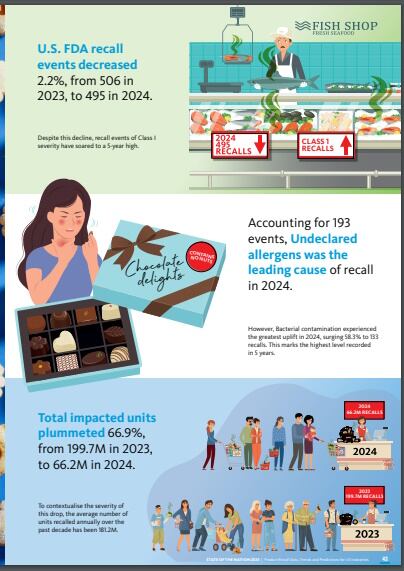
Between 2020 and 2023, the total number of food recalls issued by the USDA and FDA grew by more than 20%, increasing from 454 to 547. However, in 2024, the total number of recalls fell slightly to 495, marking a decrease from the previous year’s 506. “Despite the slight drop in total recalls, the number of impacted units remains a major concern,” said Sedgwick’s senior account manager Rachel Quinn. “The fourth quarter of 2024 saw one of the highest recall volumes in recent history, and the bakery and snacks sectors were significantly affected.”
The leading causes of recalls in the bakery and snacks sectors in 2024 remain consistent with previous years, with undeclared allergens continuing to be the most common issue. These accounted for 54 events in Q4 alone, with wheat and milk being the most frequently cited allergens. “Sesame, which was recently added to the list of major allergens, was linked to 1.08 million recalled units of bread,” said Quinn. “This reflects the increased vigilance around allergen labelling and compliance but also highlights ongoing challenges in the sector.”
While bacterial contamination was the second highest cause of recalls – affecting 16.37 million units in Q4 – the overall trend suggests that stricter monitoring and regulatory compliance efforts have helped mitigate some risks. Foreign material contamination, including plastic, metal, and glass, remains a serious concern, though the frequency of such recalls has not significantly changed.
Earlier this month in the UK, Birds Eye recalled Goodfella’s Stonebaked Thin Garlic Bread due to undeclared milk, posing a risk to those with milk allergies or lactose intolerance. In Australia, a major bakery brand recalled batches of croissants in September 2024 due to the presence of metal fragments. Meanwhile, Canada saw multiple recalls of granola bars and snack mixes from brands such as MadeGood and Quaker due to Salmonella contamination in nut-based ingredients in the latter half of 2024.
The scale and severity of these recalls indicate that manufacturers worldwide must remain vigilant and proactive in addressing contamination risks. “Consumers are more aware than ever of food safety issues, and regulatory scrutiny is increasing across the board,” Buckingham warned. “Failing to implement stringent quality control measures can have catastrophic consequences, both financially and reputationally.”
High-profile recalls
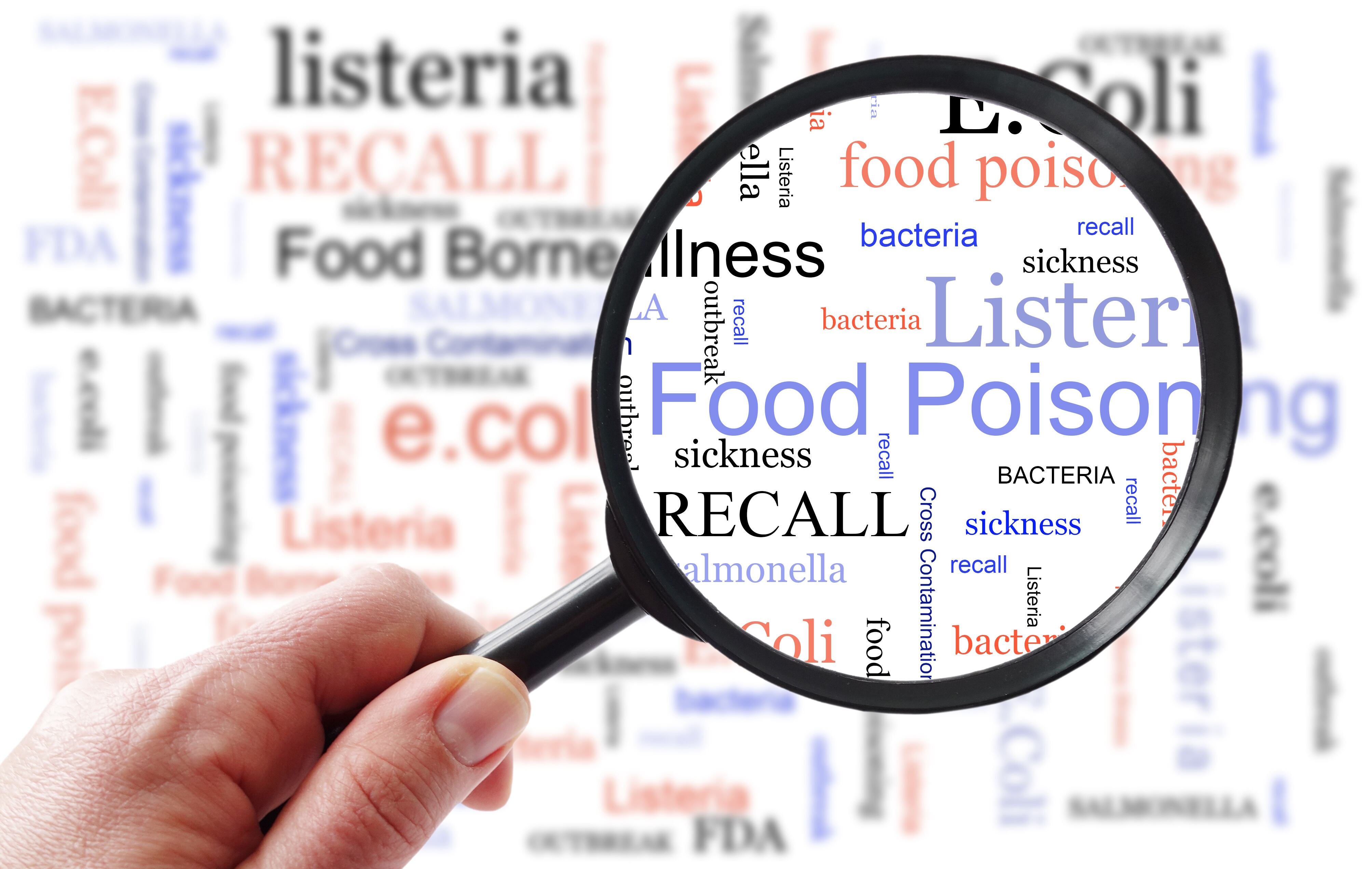
In January 2025, FGF Brands – a supplier to major chains like Dunkin' Donuts – voluntarily recalled over two million doughnuts and pastries due to potential Listeria monocytogenes contamination. The recall encompassed 60 different products distributed across the US and Canada. The company stated that while no contamination was found in the final products, non-product-related findings at one of its facilities prompted the precautionary move.
Meanwhile, in December 2024, Lay’s potato chips were recalled due to undeclared milk, raising concerns over allergen mislabelling, which remains the leading cause of recalls.
Earlier that year, General Mills also faced a significant recall of Gold Medal flour due to Salmonella contamination. Although it marked one of the largest flour recalls in history, it echoed previous recalls in the flour sector – linked to various bacterial risks over the years – which highlights an ongoing crisis.
The infant food sector was also impacted in 2023 when WanaBana recalled its lead-contaminated cinnamon applesauce pouches. Unlike most food recalls, which usually stem from accidental contamination, this incident was the result of deliberate economic fraud, with lead added to increase the weight of the cinnamon, enabling the seller to charge a higher price. The scandal triggered extensive regulatory scrutiny and reignited discussions on strengthening food fraud detection measures.
Another notable recall in late 2024 involved granola bars and cereal mixes produced by Quaker and Nature Valley, which were contaminated with Salmonella. The recall affected multiple brands across North America, leading to an industry-wide reassessment of safety protocols for nut- and grain-based products. Additionally, Hostess recalled several million units of snack cakes due to Listeria concerns, further reinforcing the ongoing risks in ready-to-eat bakery goods.
The costly consequences
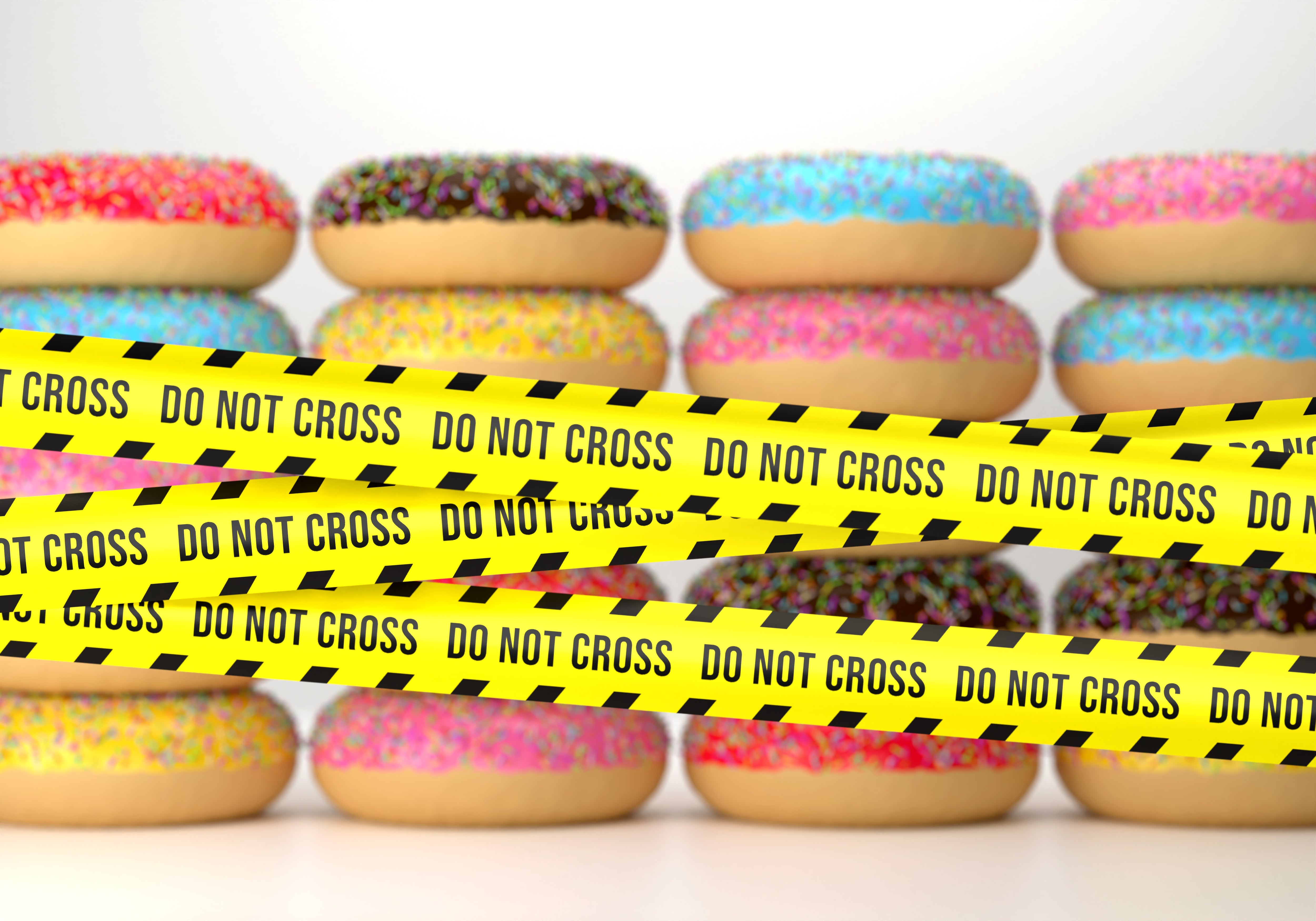
Recalls can be devastating for producers, leading to financial losses, reputational damage, and legal consequences. The direct costs include product retrieval, disposal, and replacement, along with regulatory fines and legal fees. Indirect costs, such as lost sales and eroded consumer trust, can linger long after the recall itself is resolved.
Negative media coverage amplifies these challenges, making it difficult for brands to recover from food safety incidents. Even when a company voluntarily issues a recall – as in the case of FGF Brands’ doughnuts – the public perception of a brand’s reliability can be severely affected.
Legal and regulatory consequences are also severe. In 2024, the US Department of Justice (DOJ) intensified its crackdown on food safety violations, issuing hefty fines and even criminal convictions in some cases. The DOJ charged multiple food manufacturers with failing to report safety concerns, sending a strong message to the industry that noncompliance will not be tolerated. In the UK, the Food Standards Agency (FSA) increased inspections and enforcement actions, while the European Food Safety Authority (EFSA) imposed stricter regulations on cross-border food safety violations.
To prevent recalls, bakery and snack manufacturers must implement robust food safety protocols. “It’s essential for manufacturers to stay ahead of regulatory changes and implement stringent safety measures,” Quinn advised. “Strengthening allergen management, enhancing sanitation protocols, and conducting routine microbial testing can significantly reduce risks.”
Supply chain transparency is another essential factor in preventing recalls. Conducting rigorous third-party audits and supplier verification programs ensures that ingredients meet safety standards before they enter the production process. AI-based detection systems and blockchain-enabled traceability solutions are increasingly being adopted to identify risks before they escalate into full-blown recalls.
The scale and severity of recent recalls indicate that food manufacturers worldwide must remain vigilant and proactive in addressing contamination risks.
“Companies that fail to take food safety seriously are risking their reputation, financial stability, and even legal consequences,” said Buckingham. “Now more than ever, food safety must be a top priority.”




